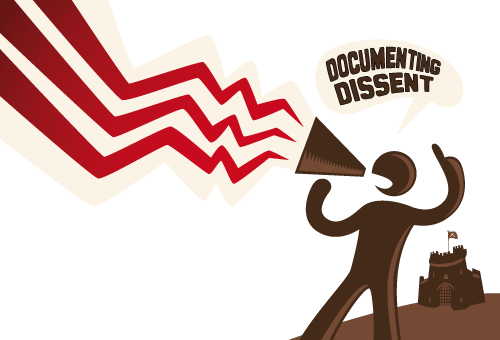The Project
Documenting Dissent
A Community Digital History Project by Global Link
Global Link was funded by the Heritage Lottery Fund to work with historians, schools and community groups to research and document the history of religious and political dissent in Lancaster, particularly in relation to the Castle. As a global education centre, we have linked these distant struggles for social justice and human rights with more recent political activism, or with issues which resonate around the world today.
A River of Dissent
Documenting Lancaster’s Heritage Relating to Political and Religious Dissent.
Lancaster has always had its share of dissenters, without itself being a major centre of protest. But as the county town of Lancashire, home to the crown court and the castle prison, Lancaster has witnessed a river of dissent flowing through over the centuries, providing inspiration and context for local protestors.

Research volunteer, Zephyrine,
speaking about her involvement in the project.
Conscientious Objectors in WW1
Franchise Act for men aged over 21
Lancashire Witches imprisoned in Lancaster Castle
Ploughshares activist attack Hawk jets in Preston
Public Events
To inspire our researchers, Global Link held a series of talks, discussions and workshops around the dissent and Lancaster Castle.
Lecture about Chartism by Dr. Mike Sanders, combined with a musical performance of the Chartist Hymnbook by singer Garth Hewitt.
Mark Nixon discusses the importance of material culture in the study of history.
Michael Mullet and Dr. Robert Poole describe the suppression of religious decent and trials of Luddites and Chartists at Lancaster Castle.



